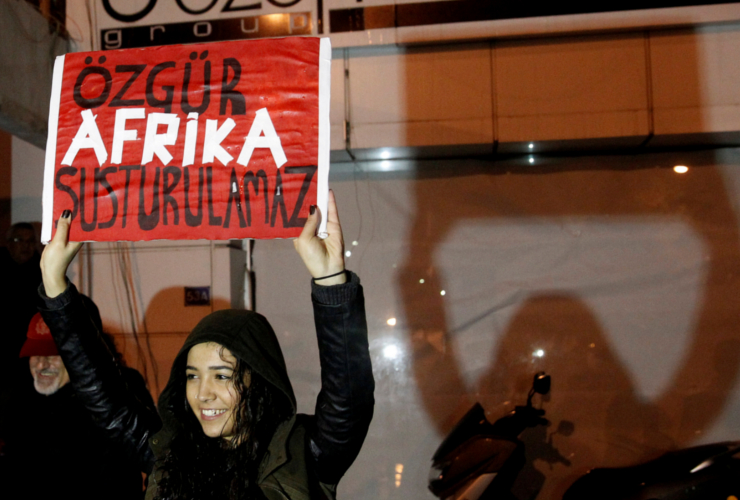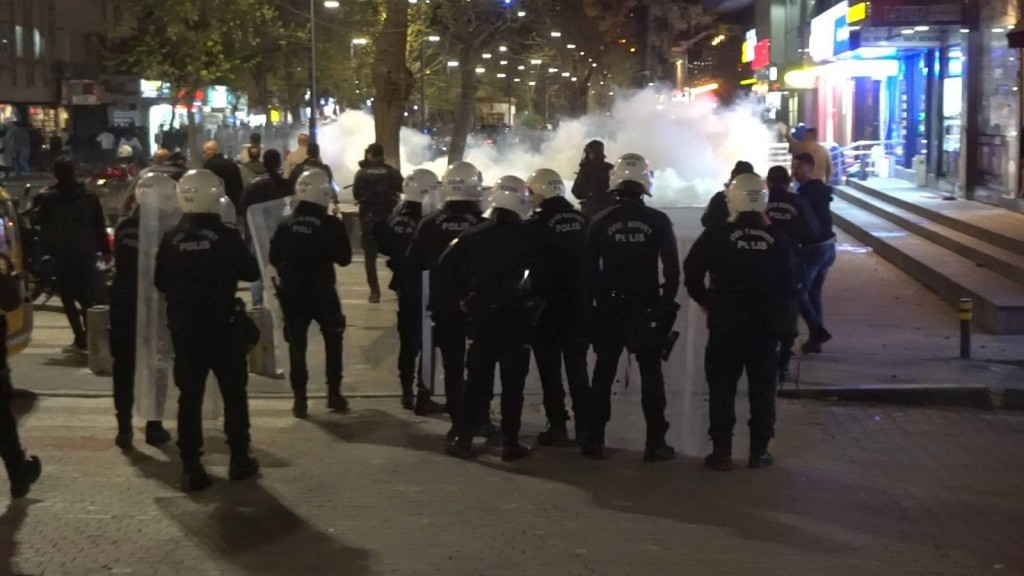Editor-in-Chief Şener Levent and the Director Ali Osman Tabak are facing defamation charges in two separate cases in Turkey, while further charges of “defaming a foreign politician” have been filed in Northern Cyprus. The accusations are based on two articles, both authored by Levent and published on January 21 and February 1 of this year, that harshly criticized Turkey’s politics and the country’s influence over Northern Cyprus. The January 21 article referred to Turkey’s military operation in Afrin, Syria as a “second invasion”, referring to Turkey’s incursion into Cyprus in 1974 as the “first”.
IPI Deputy Director Scott Griffen condemned the charges.
“This case is the latest example of Turkey’s attempts to crack down on critical coverage of President Recep Tayyip Erdoğan and his government’s policies outside of Turkey”, he said. “Ankara should end its attempt to harass Afrika newspaper.”
He added: “We urge Northern Cyprus to stand firm in protecting the fundamental rights of press freedom and freedom of expression. One immediate steps that lawmakers can take is to repeal criminal defamation laws, especially those that offer special protection to foreign leaders, which clearly violate international standards on freedom of expression.”
Thus far, journalists and officials in Northern Cyprus have expressed confidence in free press protections in their jurisdiction.
“There is no one convicted over cases related to freedom of expression in Northern Cyprus”, Sami Özuslu, head of the Cyprus Turkish Journalists Association, said in an interview with IPI. “This is very pleasing when you compare (us) to Turkey. But one might still be sentenced on defamation charges.”
He added: “However, I believe in the independence of our judiciary. Our judges and courts mostly consider the good of the free press and rule on behalf of journalists.”
Similarly, in a recent interview, Northern Cyprus Prime Minister Tufan Erhürman responded to Turkey’s prosecution of Cypriot journalists by saying: “The constitution is very clear. Extradition of journalists [to Turkey] is not even a matter of discussion.”
On January 22, the day after Levent’s first article, Erdoğan openly targeted Afrika, which was founded in 1997 under its former name “Avrupa” (Europe), during a speech.
“A newspaper in Northern Cyprus gave a shameless headline … It says: ‘The Turkish army is going for a second invasion after Cyprus.’ What an impudent, shameless thing to say. My Northern Cypriot brothers and sisters should give the necessary answer to this (nonsense).”
On the same day, following Erdoğan’s speech, as many as 200 people gathered in front of the newspaper and attacked the building with sticks and stones, causing considerable damage.
In February six of the protestors were prosecuted in Northern Cyprus and given jail sentences of between two and six months. The judge in the case also sentenced the defendants to a fine in the amount of 17,457 Turkish lira (approximately 2,800 euros), which was paid by the AKP’s Northern Cyprus representative, Mehmet Demirci.
The judge, Tacan Reynar, resigned from office in May 2018. Reynar reportedly faced threats due to the case and had been placed under police protection.
Speaking to IPI, Özuslu highlighted Turkey’s influence in Northern Cyprus, noting that the cases in Nicosia for “defaming a foreign politician” had been filed under the influence of the Turkish Embassy in Northern Cyprus.
“Turkey is extremely influential on Northern Cyprus, you can sense it on every level of daily life”, he said. “Especially during the Afrika newspaper trials, now-resigned judge Tacan Reynar was implying what sorts of difficulties they had been facing. He didn’t say anything specific, but we all can imagine what kind of requests or (unofficial) demands can be directed (by Turkish authorities) to our judges.”
However, Özuslu stressed that he believed that press freedom in Northern Cyprus would be protected.
“We fought so hard to create such an atmosphere as it is today for independent press in Cyprus – we are not willing to give up on that so easily.”



